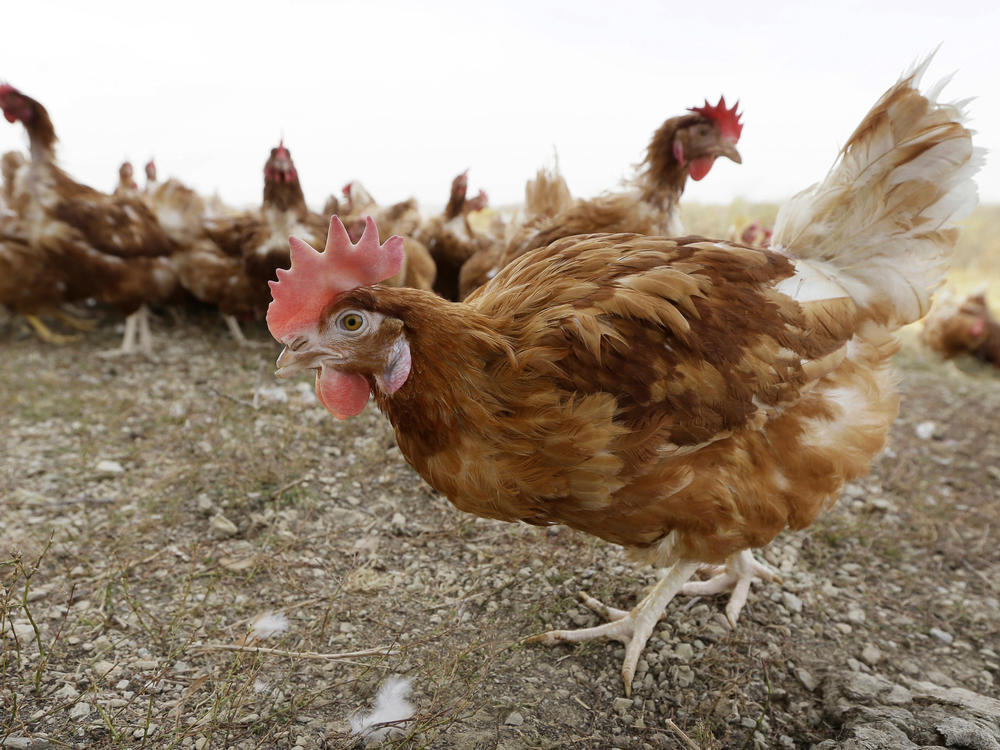Section Branding
Header Content
The first human case of avian flu in the U.S. is reported in Colorado
Primary Content
A man in Colorado is the first human in the U.S. to test positive for bird flu, the Centers for Disease Control and Prevention announced Thursday.
The case comes as the H5N1 bird influenza tears through the U.S., posing a low risk to humans while leading to the deaths of millions of birds. Some of the birds have died from the disease, but the vast majority of them are being culled to curb the spread.
The patient, who is younger than 40, was involved in the culling of presumptively infected poultry at a commercial farm in Colorado's Montrose County, according to the Colorado Department of Public Health and Environment. He is an inmate at a state correctional facility in Delta County and was working with poultry as part of a pre-release employment program.
Members of the response team were all given personal protective equipment while working on the farm, and the affected flock has been euthanized.
The patient has since recovered after reporting fatigue that lasted a few days as his only symptom. He was treated with oseltamivir, an antiviral influenza medication commonly sold under the Tamiflu brand.
The virus was detected on a single nasal specimen and could have been present in the patient's nose without causing infection, according to a statement from Colorado authorities.
This case marks the second human case associated with this group of H5 viruses — the first case occurred in the U.K. in December 2021, according to the CDC. The first patient lived with a large number of birds that became infected with H5N1, according to the World Health Organization.
Still, for the general public, the human risk of bird flu remains low, the CDC says. Those who have job-related or recreational exposure to infected birds are at higher risk for infection.
"We want to reassure Coloradans that the risk to them is low," said Dr. Rachel Herlihy, the state epidemiologist, in the statement.
Both wild birds and commercial and backyard flocks are contracting bird flu. More than 35 million birds in flocks across 30 states have been affected.
A total of 58,070 birds have been affected in Colorado, according to the latest data from the U.S. Agriculture Department. In Iowa, one of the worst-hit states, more than 13 million birds have been affected.
Copyright 2022 NPR. To see more, visit https://www.npr.org.

